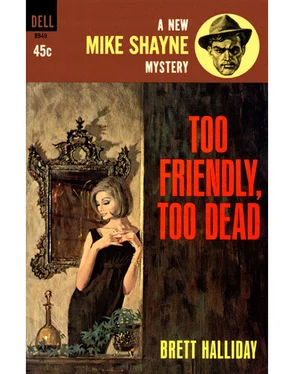Dan Fesperman - The Double Game
Здесь есть возможность читать онлайн «Dan Fesperman - The Double Game» весь текст электронной книги совершенно бесплатно (целиком полную версию без сокращений). В некоторых случаях можно слушать аудио, скачать через торрент в формате fb2 и присутствует краткое содержание. Жанр: Шпионский детектив, на английском языке. Описание произведения, (предисловие) а так же отзывы посетителей доступны на портале библиотеки ЛибКат.
- Название:The Double Game
- Автор:
- Жанр:
- Год:неизвестен
- ISBN:нет данных
- Рейтинг книги:3 / 5. Голосов: 1
-
Избранное:Добавить в избранное
- Отзывы:
-
Ваша оценка:
- 60
- 1
- 2
- 3
- 4
- 5
The Double Game: краткое содержание, описание и аннотация
Предлагаем к чтению аннотацию, описание, краткое содержание или предисловие (зависит от того, что написал сам автор книги «The Double Game»). Если вы не нашли необходимую информацию о книге — напишите в комментариях, мы постараемся отыскать её.
The Double Game — читать онлайн бесплатно полную книгу (весь текст) целиком
Ниже представлен текст книги, разбитый по страницам. Система сохранения места последней прочитанной страницы, позволяет с удобством читать онлайн бесплатно книгу «The Double Game», без необходимости каждый раз заново искать на чём Вы остановились. Поставьте закладку, и сможете в любой момент перейти на страницу, на которой закончили чтение.
Интервал:
Закладка:
The next morning, a bit hung over, I agonized over how to handle Lemaster’s little bombshell. No doubt my family connection had allowed me to maneuver into a position of trust. Alcohol had also played a role. And any man unaccustomed to giving interviews was certainly more prone to a lapse. But weren’t such factors part and parcel of effective interviewing? Didn’t readers of the Post deserve the truth? And hadn’t I succeeded where even Time magazine had failed?
I was reminded of a Joan Didion line I’d read in college, something about how writing was always a matter of betrayal. That’s when I realized I couldn’t go through with it, not for something as ephemeral as a newspaper story. I felt immediate relief, albeit it with a pang of disappointment, but my decision was made. I was too close to the story. I would keep the revelation to myself.
Or such was my intention when Metro Editor Kent Spencer approached my desk an hour later to ask how the story was coming. I described my approach. His downturned mouth indicated he was less than impressed. So, as a teaser, or maybe just to show him what a diligent little questioner I’d been, I found myself saying, “You know, right toward the end of the evening he mentioned something pretty interesting.”
Even as I told him I was calculating how to use the quote, after all, by sprinkling it into the final paragraphs. It would be an anece to unite the story’s major threads. A kicker, as we said in the business. That way I could provide the proper context-the drinks, the off-the-cuff mood, the devil’s advocate thrust of my question.
But Spencer was a step ahead of me.
“He said what? Are you telling me the author of The Double Game actually considered being a double agent? That’s a helluva story, Bill. I mean, it’s still kind of featury, but only if you go with a soft lead. Who knows? They might even want it out front.”
My stomach rolled over. The dangerous animal I had just released from its cage paused to bare its teeth, then leaped beyond reach. I tried to catch it.
“Really, Kent, it wasn’t like he was serious.”
“C’mon, a quote like that? You got it on tape, I hope.”
“Sure, but…” In my rush to chase down the beast I had just ensured its escape. If I’d told Spencer the remark wasn’t taped, I might have been able to downplay it, even bury it. Instead, my editor now knew it was not only usable but lawyerproof.
“Great! Lead with it.”
“I was thinking more in terms of a kicker. It would make the perfect ending.”
“What, then have some turnip on the desk cut the story from the bottom? It’s called news, Bill. It goes at the top.”
So, with a dark sense of foreboding and, worse, of betrayal, I wrote a story saying that spy-turned-novelist Edwin Lemaster had once considered working for the Soviet Union. By the time Spencer and the copy desk finished with it, the tone was downright accusatory, and even my loudest protests couldn’t repair the damage.
It was a brief sensation, of course. The wires picked it up before the ink was dry, and by noon one UPI version had even reported that Lemaster “nearly defected.”
Lemaster never called, never wrote. He responded only through a press release in which, as I richly deserved, he condescendingly implied that a callow young hack had used an unguarded moment of tipsy speculation to fashion a mountain out of a molehill.
But the strangest reaction may have been my father’s. He phoned our apartment even before April was out of bed. He lived in Paris then, one of his last diplomatic postings. In those pre-Internet days he must have spotted the item in the State Department’s daily press summary, and then gotten someone in Washington to read him the text.
“Jesus, Bill, what have you done to our old legend Edwin Lemaster? You get him drunk or something?” His tone was strained, like he was trying to keep it light but not succeeding.
“You’re the one with some explaining to do. How come you never told me you were friends?”
There was a sharp intake of breath, followed by a pregnant pause. Then, in halting steps: “Did he… He told you that?”
“Yes.”
Another pause, the line crackling from across the Atlantic.
“What else did he say about, well, all that?”
“Hardly anything. Said you crossed paths a few times, that you were ‘a good soldier, a good Joe.’ Nothing specific. I would’ve thought you’d have mentioned it at least once.”
“There were security reasons. And you…” He sighed, groping his way through the static. “You’d have thought I was name-dropping.”
“Is that the best you can do?”
I tried to sound offhand, hoping for a laugh, or for more. Dad is a nimble conversationalist, and this was his opening. But he held his ground, and when we hung up a few seconds later it felt as if a veil of secrecy had been lowered between us. Worse, maybe it had been there all along.
But what I didn’t learn until recently was that elsewhere, my story had planted the seed of unintended consequences deep in the fertile soil of chance. Blowback, the wonks call it now. Reaping the whirlwind. Although by the time germination occurred, the matter had assumed the nature of a hybrid, its traits drawn literally from all those spy novels I had once read with such youthful interest.
Page by page, I would be lured back into an era when fact and fiction were virtually indistinguishable, yet with consequences that were anything but dated.
2
SEPTEMBER 2010
The envelope poked like a white tongue from my Georgetown mail slot, making it seem that the front door was taunting me as I approached my empty townhouse at dusk. I was wondering why the postman hadn’t shoved it on through until, plucking it free, I saw it was neither stamped nor addressed. Only the formal version of my name, “William D. Cage,” was typed on the outside. It was sealed.
Ignoring the bills and flyers piled on the rug, I took it to the living room chair by the window so I’d have enough light to read. I was about to tear it open when the refined quality of the envelope seemed to demand the use of a letter opener, so I rose to fetch a silver one from my writing desk before returning to the chair, feeling instinctively that this wouldn’t be something I’d want to read standing up.
Inserting the blade at the end, I flicked it down the crease with the skill of an assassin, releasing a scent that was strangely nostalgic.
Smells like… Europe, I nearly said aloud. But that seemed ludicrous, even impossible. So I raised it to my nose, and there it was again, unmistakable, a hint of all those grand way stations of my youth in the depths of their winter gloom-sulfurous coal smoke, hosed cobbles, the chill damp of a low gray sky-even though in Georgetown it was warm and muggy, a summery day at the end of September. Weird.
A single sheet was folded inside. The paper itself looked and felt oddly familiar, the sort of fine, sturdy bond you find only at better stationers. The contents were brief but remarkable:
Message posted for you concerning the whole truth about your onetime acquaintance, Mr. E.L. of Maine. To retrieve, use Folly’s tradecraft, page 47. Then use book code, line 11. The dead drop will be known to you, just as it was to Ashenden from the very beginning. Welcome to the real Double Game.
Well, now.
E.L., obviously, was Edwin Lemaster, still living and still writing, way up in the north woods of Maine, where he no longer granted interviews. The idea that there might be some sort of “whole truth” yet to discover about him was intriguing, but so were the multiple literary references that jumped from the page. Folly was of course Lemaster’s Richard Folly, and the tradecraft prompt seemed to be directing me to page 47 of The Double Game, probably the hardback edition. Ashenden was an early hero of the espionage canon from the eponymous 1928 novel by Somerset Maugham, yet another author who had spied for his country. I assumed that the wording “from the very beginning” meant I should scan the book’s opening pages for some clue as to the whereabouts of the purported dead drop, which, in the spy trade, was a secret place for stashing messages.
Читать дальшеИнтервал:
Закладка:
Похожие книги на «The Double Game»
Представляем Вашему вниманию похожие книги на «The Double Game» списком для выбора. Мы отобрали схожую по названию и смыслу литературу в надежде предоставить читателям больше вариантов отыскать новые, интересные, ещё непрочитанные произведения.
Обсуждение, отзывы о книге «The Double Game» и просто собственные мнения читателей. Оставьте ваши комментарии, напишите, что Вы думаете о произведении, его смысле или главных героях. Укажите что конкретно понравилось, а что нет, и почему Вы так считаете.












